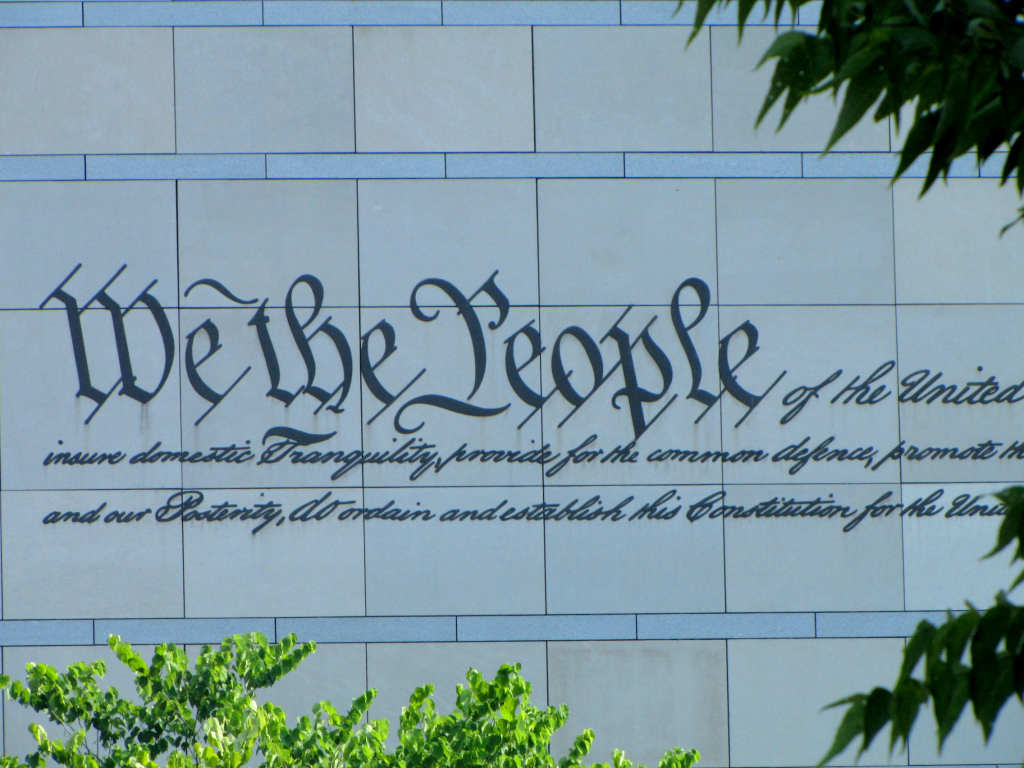
Image Credit: Ziko van Dijk, CC BY-SA 3.0, via Wikimedia Commons
By Saul Roth
The Constitution of the United States of America is a very complex document that was developed during a complicated time at the birth of the United States. Despite its completion and ratification in 1791, there were still many issues that needed to be resolved between the founders and the states. In 1791 the Bill of Rights was added to the Constitution. Originally there were ten amendments. The founders were concerned that the federal government was acquiring too much power, especially over the states. The original intent of the first ten amendments was to keep the government in its place and allow the states to govern themselves. The Bill of Rights was ratified in 1791, but there was much debate in the state conventions prior to the ratification of the Bill of Rights. Some of these debates were held behind closed doors in the 1700’s and continue to this day. The Second Amendment is one amendment that has created much debate over the years. It still does.
The Second Amendment states” A well-regulated Militia being necessary to the security of a free state, the right of the people to bear arms, shall not be infringed”. Prior to researching this subject I was not for the freedom of gun sales and gun possession that exists in this country. However, I held this belief without reading exactly what the Second Amendment states. As soon as I read the clause regarding a well-regulated militia, I believed the intent of the Second Amendment was for keeping a well-regulated militia. This would be accomplished by having colonialists who would mobilize with arms. This much-contested debate involves my beliefs and those of others who oppose that view and believe the Second Amendment allows most citizens to have and bear arms. The founders created this debate because of the way the Second Amendment is written. The comma after the phrase “a free state” produced the debate. We have to remember, however, that the time this Amendment was written and passed, colonists all probably did have guns because they hunted and also were developing the land and moving west to settle the country. There was no military like we know it today and likely very little police, perhaps a sheriff and a U.S. Marshall maybe where deputies were sworn in by a sheriff from the populace. All of these would have to bring their own arms to serve.
Both sides on this issue offer strong evidence. To follow the intent of the Second Amendment, one has to look back to the colonies and its situation before the American Revolution. There is no one alive to interview and no videos to view of course. All research has to be accomplished through reading through thousands if not millions, of archived historical documents. One way to look back is the Early American Imprint Series. It contains over 15,500 documents from 1763 to 1791 alone. There are 273 hits on use of the term “bear arms”. If reprints of important documents such as the Bill of Rights are removed, there are still 111 hits on the phrase to “bear arms”. Sorting through the Early American Newspaper database, one finds 115 hits for the phrase to “bear arms”. The Library of Congress offers forty-one hits on the phrase. In the American Imprint Series only two responses do not denote a military inference to “bearing arms” The Early American Newspaper database has only five with no military meaning for the phrase. The Library of Congress has only four without a military connotation. (Kozuskanich, 2008)
After the French and Indian War (1754-1763), Georgia passed an act that stated that “so every person liable to appear and bear arms at any muster” After the war, states in the South were on heightened alert because of the slave population. The Georgia law restricted to white men the right to “carry arms” in church, but only to men who would bear arms in the militia. The law was specific in that those who could carry arms were those that could “bear” arms. In Pennsylvania, a large debate called the Paxton Crisis erupted over pacifist Quakers not “bearing arms” They would not join a militia and muster bearing arms. Yet the Quakers “carried “arms to hunt. Quaker founder, George Fox, was put in jail for “declining military duty”, as he was forbidden by the “Dictates of Conscience” to bear arms. (Kozuskanich, 2008)

Recent Comments